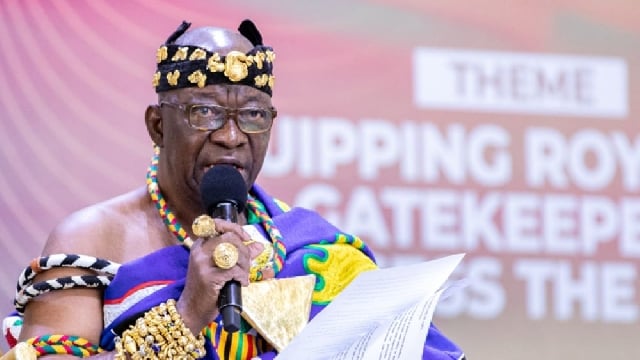The Bonokyempim Hall in Techiman, Bono East Region of Ghana, witnessed a decisive electoral event as Nana Pimampim Yaw Kagbrese V, the Paramount Chief of the Yeji Traditional Area, emerged victorious in the race for the Council of State representative. The seasoned leader, also serving as the President of the Bono East Regional House of Chiefs, secured a clear majority with 11 out of the 22 votes cast, solidifying his position as a key figure in the region’s political landscape. This election not only underscores Nana Kagbrese V’s influence and respect within the community but also sets the stage for his active involvement in regional governance at the national level. The election, held under a watchful eye of security personnel, saw participation from delegates representing the eleven Metropolitan, Municipal, and District Assemblies across the Bono East Region, signifying the democratic process at the grassroots level.
The election’s outcome highlights a significant victory for Nana Kagbrese V, a 73-year-old leader whose experience and understanding of the region’s dynamics undoubtedly played a crucial role in his success. His closest competitor, Nana Opoku Fosu Gyeabour, a 65-year-old engineer, secured a respectable 7 votes, while Michael Kwasi Amponsah, a 40-year-old pastor, received 4 votes. The remaining seven candidates, including prominent figures like former Techiman South MP Simmons Addai and People’s National Convention (PNC) Regional Chairman George Bauh Inusah, failed to secure any votes. This distribution of votes reveals the voters’ preference for experienced leadership, as demonstrated by the significant support garnered by Nana Kagbrese V and Nana Gyeabour.
The election’s aftermath saw Nana Pimampim Yaw Kagbrese V addressing the media, outlining his vision for the region and emphasizing his commitment to collaborative governance. He pledged to work closely with assembly members across the Bono East region to address critical challenges hindering the region’s progress. Among these challenges, he highlighted chieftaincy disputes, a longstanding issue often impeding development and social cohesion, and the poor state of road infrastructure, which severely restricts economic activities and access to essential services. This proactive approach signifies Nana Kagbrese V’s understanding of the region’s pressing needs and his dedication to finding sustainable solutions through collaborative efforts.
Nana Kagbrese V’s victory signifies more than just a personal accomplishment. It represents the hope for positive change and improved governance within the Bono East Region. His commitment to collaborate with assembly members suggests a move towards inclusive decision-making and a more unified approach to regional development. Addressing chieftaincy disputes, often deeply rooted in tradition and local politics, requires a delicate and nuanced approach. By prioritizing this issue, Nana Kagbrese V demonstrates his commitment to resolving conflicts and fostering peaceful coexistence within the region’s diverse communities.
Furthermore, the focus on improving road infrastructure underscores a practical understanding of the region’s developmental needs. Improved roads are crucial for connecting communities, facilitating trade, and ensuring access to healthcare and education. By prioritizing this critical infrastructure development, Nana Kagbrese V aims to unlock the economic potential of the Bono East Region and improve the quality of life for its residents. This infrastructure development will not only facilitate the movement of goods and services but also improve access to essential services, ultimately contributing to the overall socio-economic growth of the region.
In conclusion, the election of Nana Pimampim Yaw Kagbrese V as the Council of State representative marks a significant moment for the Bono East Region. His experience, coupled with his expressed commitment to addressing key challenges through collaboration, offers a promising outlook for the region’s future. His victory is a testament to the trust placed in him by the electorate and his demonstrated leadership within the traditional and political spheres. The region now looks forward to his tenure, anticipating positive changes and sustained progress in addressing the long-standing issues hindering its development. This election, therefore, is not just about choosing a representative but also about choosing a direction for the Bono East Region – a direction guided by experience, collaboration, and a commitment to progress.


